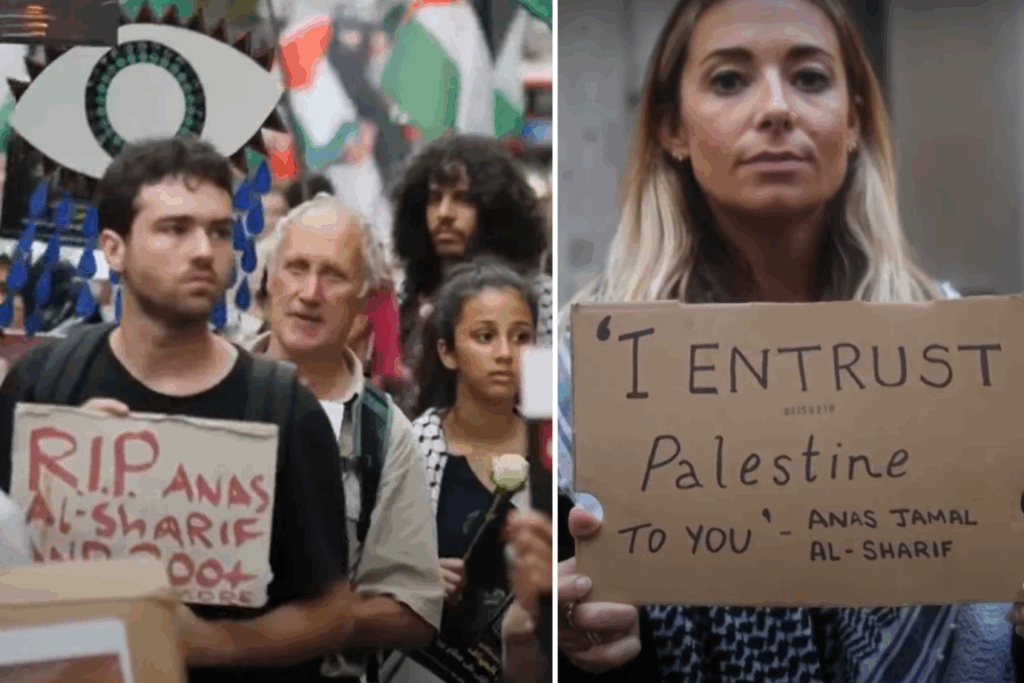While international journalists continue to be locked out of Gaza, it is up to Palestinian journalists to be the voice of a starving people. And yet, these brave individuals have been extensively targeted and killed by the Israeli government for reporting the reality on the ground.
Israel has killed at least 226 journalists and media workers since it launched its war on Gaza, according to the International Federation of Journalists.
This means more journalists have been killed in Gaza since October 7, 2023, than in any major war since the year 1800, as shown in Brown University’s Costs of War project. This includes the US Civil War, World Wars I and II, the Korean War, the Vietnam War (including the conflicts in Cambodia and Laos), the wars in Yugoslavia in the 1990s and 2000s, and the post-9/11 war in Afghanistan.
Worldwide threats to journalists are increasing, and as many advocates have already pointed out, governments don’t kill the people documenting a war zone unless they have something to hide.
Journalists are a channel for transparency and accountability. Two things that Israel has chosen to cut off through these killings.
Some of the most recent killings include Israel’s attack on a media tent outside the main gate of al-Shifa Hospital in Gaza City. Four journalists from Al Jazeera Arabic were killed, including correspondent Anas al-Sharif (28), correspondent Mohammed Qreiqeh (33), cameraman Ibraham Zaher (25) and Mohammed Noufal (29).
Sparked by news of the attack, protests and memorials for these slain media workers have erupted across the world.
Determined to fight for press freedoms, protesters have taken to the streets in the occupied West Bank of Palestine, Tunisia, Belfast, Dublin, Berlin, Washington DC, London, Oslo and Stockholm.
In New York City, protesters stood defiantly outside the New York Times to address Western media’s complicity in allowing press freedom to come so far under attack in Palestine.
“We’re here because of the role of legacy media institutions, like The New York Times, have played in running cover for Israel’s genocide. We know these media institutions have the ear of the powerful,” one protester in New York told an Al Jazeera English journalist.
In Washington DC, more protesters gathered for these reasons outside a building housing the media institutions NBC, Fox News, ITN and The Guardian.
Even in Israel, some Israeli journalists held a vigil protesting the killing of journalists in Gaza, with one woman protester telling DawnNews English that they came to show that “we care about what happened to our colleagues in the Gaza strip” and that our concerns are for “the safety and media freedoms of all journalists”.
The largest organisation representing journalists in Australia, the Media, Entertainment and Arts Alliance (MEAA) released a statement this week condemning the “targeted killing” of the Palestinian media workers. MEAA said al-Sharif’s “reports brought to the world the reality of the horrors being inflicted by the Israeli Government on the civilians in Gaza”.
“The targeting of journalists is a blatant attack on press freedom, and it is also a war crime. It must stop.”
In a recent video, MEAA members from across the media industry honoured the killed journalists and media workers in Gaza by reading aloud their names
Calling for an investigation into the Israeli attacks, UN Secretary-General Antonio Guterres’s spokesperson stressed that journalists everywhere must be allowed to work without fear of being targeted.
Amnesty International condemned the killings of journalists as a war crime, and specifically honoured the late journalist al-Sharif, who received the Human Rights Defender Award in 2024 for his commitment to press freedom.
In a final message, written on April 6, to be published in the event of his death, al-Sharif had said he “lived the pain in all its details” and “never hesitated to convey the truth as it is”.
“Not even the mangled bodies of our children and women moved their hearts or stopped the massacre that our people have been subjected to for over a year and a half.”
Back in May this year, when the number of journalists killed in Gaza spilled over into uncharted territory, well-known Palestinian photojournalist Fatima Hassouna was among those killed, just one day after she found out a documentary about her life in Gaza was to premiere in Cannes.
“If I die, I want a resounding death,” Hassouna, who was only in her mid-twenties, had shared on social media.
“I don’t want to be just breaking news, or a number in a group, I want a death that the world will hear, an impact that will remain through time, and a timeless image that cannot be buried by time or place.”



